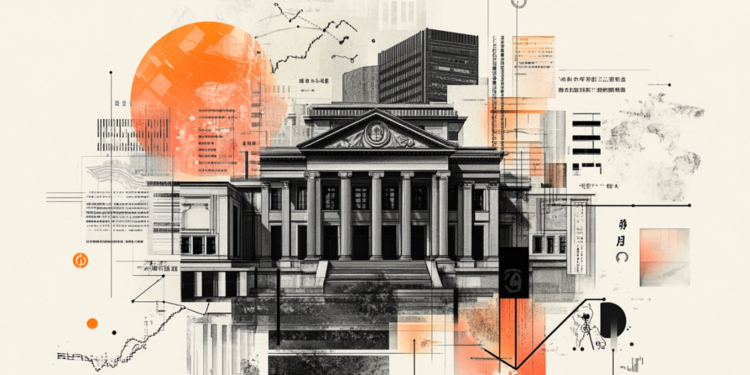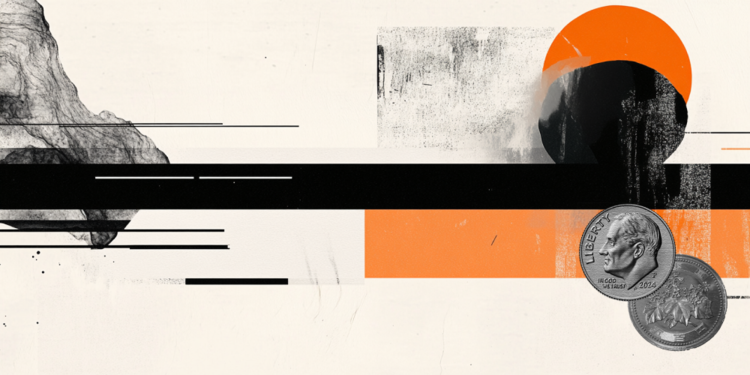Her Eleftherias Kourtali
Analysts are analyzing the decisions of the ECB, which found the markets unprepared, as shown by the reaction of the bonds with the yields increasing significantly in the aftermath of the announcements of the Board. While they expected the ECB to be more cautious and delay the normalization of its policy due to the war in Ukraine, in the end it seemed that it was more concerned about a further sharp rise in inflation than about the negative shock to demand. Thus, Citigroup and Bank of America see QE termination by September and are confident of raising interest rates in October or December.
“As we feared, the ECB is accelerating policy normalization,” Citigroup said. The guidance criteria are likely to be met by the Board, but it remains unclear what will guide the ECB’s next steps and what it aims to achieve. Weakening growth could prevent an increase in interest rates before the summer, but by the first quarter of 2023, the policy rate will probably be at 0% and will remain there.
According to Citi, the conclusions of the ECB decisions suggest two important things.
First, the will to normalize monetary policy is very strong and largely unsustainable in the economic environment, despite the ECB’s insistence that all decisions depend on circumstances. Citi considers it unlikely that the ECB will be able to stop buying assets by the end of June. The published GDP growth forecasts (increase of 3.7% in 2022) are likely to be significantly revised downwards, while it is also expected to revise the inflation forecasts. However, Citi maintains the expectation that net purchases will be completed by September and that a first interest rate hike will take place in October or December, with October more likely.
Second, according to Citi, growth prospects for the euro area will continue to deteriorate, not only as a result of continuing additional shocks in energy and supply, but also because the rapid withdrawal of asset markets will make it more difficult for governments implement fiscal policy as needed to shield the economy from these shocks and rebuild supply. This makes it even less likely that the ECB will make much progress on normalization. So Citi expects another rate hike in the first quarter of 2023, bringing interest rates to zero, but then the lack of price pressure created by the domestic market will probably stop further tightening.
For its part, Bank of America points out that the ECB’s stance was what it expected, that is, somewhat aggressive. The US bank expected the ECB to 1) signal an accelerating end to bond markets, 2) change the guidance linking the end of asset purchases to the first interest rate hike to “just before” to have maximum flexibility in the course of interest rates, 3) confirm the end of the PEPP in March and 4) remove from the guidance the indication that interest rates are likely to move lower. “We got what we expected, but the details were a little more aggressive than the market expected,” he said.
Geopolitical developments are stagnant in the short run, as BofA notes: they are recessionary but bring much higher inflation. This was reflected in the ECB’s new forecasts, although it did not go far enough in terms of growth cost analysis. The impact on inflation clearly dominated the internal discussions on the Board. With the APP at € 40 billion in April, € 30 billion in May and € 20 billion in June and no clear visibility in the third quarter, an increase in interest rates in the third quarter is likely. September is a possible date for the first rate hike, but as the ECB is expected to revise its optimistic growth forecasts, very weak second- and third-quarter growth will force it to wait until December.
In addition, two other important elements emerged from the ECB decisions, BofA points out.
First, the sense of urgency continues to build. This means that if the ECB manages to wait until December to raise interest rates, it is likely to tighten policy more than previously expected. According to BofA, the ECB will make five interest rate hikes, one quarterly, by December 2023.
Second, it is really in a hurry to stop buying assets. More clean markets add incentives, the ECB sees it that way. And all scenarios, as Lagarde pointed out, go to 2% inflation in the medium term. Thus, there is no real need for asset purchases. As a result, BofA still expects the APP to shut down in the third quarter, not necessarily in September.
Source: Capital
I am Sophia william, author of World Stock Market. I have a degree in journalism from the University of Missouri and I have worked as a reporter for several news websites. I have a passion for writing and informing people about the latest news and events happening in the world. I strive to be accurate and unbiased in my reporting, and I hope to provide readers with valuable information that they can use to make informed decisions.







